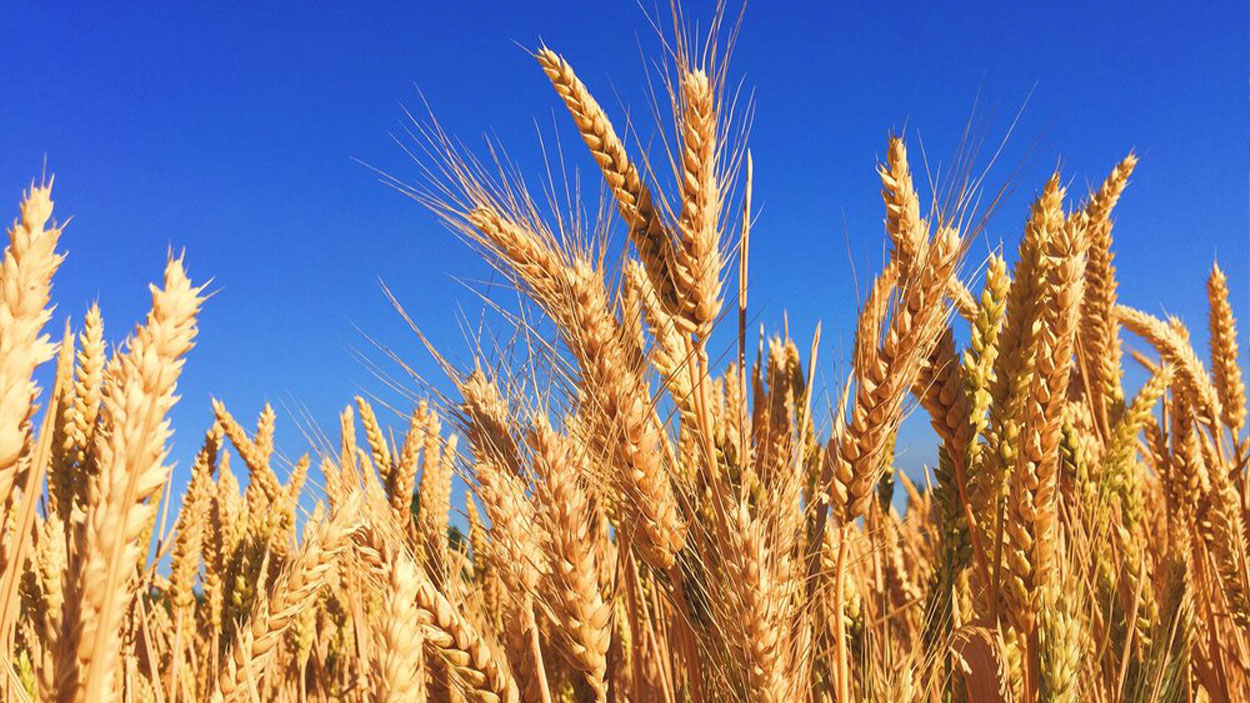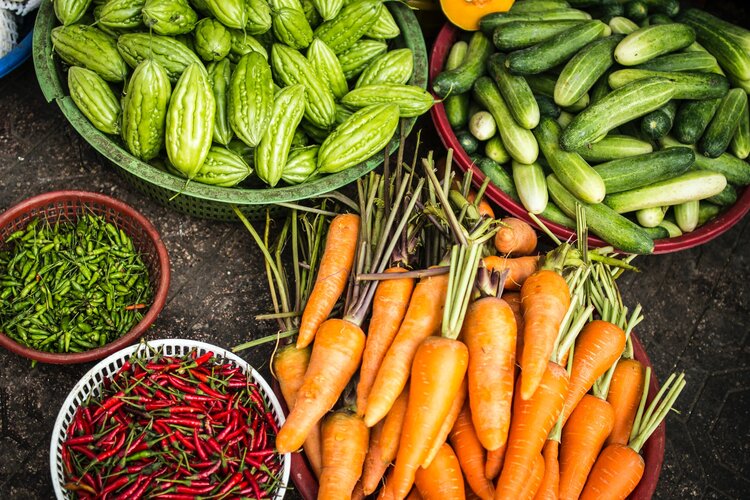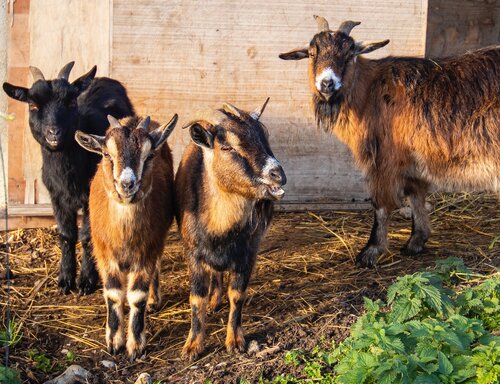Minnesota Venture Farms

Our Origin Story
GMCC is located in the Minneapolis Lake Street Corridor, the global epicenter of the 2020 uprisings. Minnesota is one of the most racially inequitable states in the country; in fact, the City of Minneapolis recently announced racism as a public health emergency. Our community was deeply impacted by the pandemic and last summer’s civil unrest, which finally brought public awareness to our struggles with racial inequity, persistent food access disparities, and COVID-induced disruptions in food supply chains. Of particular interest, producers were forced to destroy fresh food because large contracts (e.g., schools and restaurants) were cancelled due to widespread closures. Meanwhile, demand for food assistance increased throughout Minnesota as the health and economic impacts of the pandemic continued to exacerbate existing food disparities in rural and BIPOC communities.
In response to these challenges, in the summer of 2020, GMCC partnered with Sprout, a food hub and marketplace in Little Falls, MN, and Initiative Foundation to engage farmers, growers, food shelf staff and volunteers, and food researchers in a co-design process, or “sprint,” to reimagine and reengineer food supply systems disrupted by COVID-19.
Utilizing a Human-Centered Design approach, the GMCC-Sprout team created an iterative and structured space for community members, or “co-designers,” to share and synthesize their perspectives, knowledge, networks, ideas, and resources. The team’s community-based participatory research resulted in the identification of opportunity gaps throughout rural and urban Minnesota. They found a need for increased communication, collaboration, and implementation of on-farm technologies to establish a more resilient, connected food supply system as too many organizations work in silos within Central Minnesota. Most importantly, the team’s research findings emphasized a stark lack of engagement and inclusion of Black, Indigenous, and people of color. Leveraging these insights from the sprint, GMCC created a think tank to further explore how to strengthen the regional food system, in the context of COVID-19 and growing economic hardships.
Collective Design Process: Think Tank
The Food Systems and Rural Broadband Think Tank was formed immediately after the sprint to continue brainstorming equitable and sustainable solutions to our fragmented food system. Members of the Think Tank included young, emerging, and experienced farmers, agri-entrepreneurs, food researchers, food shelf partners, and BIPOC farming experts. The group held three wide-ranging conversations between November 2020 and February 2021, where they shared their lived agricultural experiences in Minnesota. The Think Tank recognized how difficult it was to access land as an emerging BIPOC farmer in Minnesota. Indeed, the Minnesota Census of Agriculture confirms this experience: in 2017, 94% of all producers and 96% of all principal producers in Minnesota were white. Breaking into such a white-dominated space is daunting, and many BIPOC farmers are left to navigate it without adequate resources and support.
To complement GMCC’s research findings with Sprout, the Think Tank also engaged the University of Minnesota Extension. The U of M Extension utilizes University science-based knowledge, expertise, and training in food and agriculture to uplift rural, urban, and tribal communities in the state.

Guiding Principles for Solution
The following guiding principles were derived and incorporated into the design process of the Minnesota Venture Farms.
Collaboration & Synergy: The purpose of Minnesota Venture Farms is to coordinate and collaborate with communities and organizations working to dismantle inequitable food systems. All efforts must leverage existing relationships and networks to ensure a collective approach.
Asset-Oriented: Resources and personnel (volunteers) are becoming increasingly scarce in many communities, especially during COVID-19. Existing efforts should make use of assets in new creative ways rather than create new and possibly redundant programs/initiatives.
Equitable & Inclusive: We must continually ask “Who is at the table, and who is missing?” to ensure that our actions are inclusive of and grounded in the collective lived experiences of BIPOC communities.
Trust: Building trust requires transparency about purpose, goals, progress, and even failures along the way. All involved working to build an equitable food system must in the long term work on creating a culture of trust.
Action-Oriented: A “one size fits all” approach will not work across diverse and dynamic communities. Currently, food systems cater to white populations and we must work to recreate a food system that incorporates the intricacies and diversity of our BIPOC communities.
Minnesota Venture Farms
After a series of discussions, members of our think tank decided to focus their attention on collectively re-envisioning a multifaceted food system that is inclusive of and beneficial to BIPOC communities. We co-designed the Minnesota Venture Farms to:
-
create an equitable, independent, and scalable food-access ecosystem;
-
invest in local farms;
-
provide new opportunities in agri-businesses;
-
create new distribution channels;
-
diversify farming practices while increasing production;
-
and nurture the talent of emerging BIPOC farmers.
To create systems change, our proposed venture will encompass four pillars


Building an Equitable Food System
Our process to create structural change in support of these pillars is grounded in equity and community-determined goals and outcomes; these communities may be determined by geography, culture and identity, economic solidarity, or some other expression.
The process has already begun with deep social networking driven by a BIPOC-led think tank of experienced food champions. This think tank has engaged and mobilized a committed group of people, organizations, and institutions that are interested in or already co-creating a food web across Minnesota and the Northern Midwest region: one that is resilient, regenerative, and equitably accountable to local and regional peoples and economies.
We are now preparing to work closely with regional food web participants to conduct participatory research and development activities. The intention of these activities will be to understand and deliver improved social, economic and environmental outcomes for BIPOC food growers, eaters, businesses and communities, as well as natural ecologies.
Once fully implemented, Minnesota Venture Farms will be underpinned by a continual quality improvement process that measures and actions the following critical success factors:
-
Starting a cooperative: We will build a BIPOC-led agricultural cooperative initially consisting of five farm sites. As the initiative grows over the next ten years, we will add new member farms, providing space to engage smaller evolving farms as well as larger existing ones. The cooperative structure will provide BIPOC farmers with reduced costs (due to economies of scale), increased market power, and more opportunities for upward mobility as it becomes profitable and self-sustaining.
-
Building capacity: We will work to build capacity in BIPOC and emerging farmers by providing access to land, farm equipment, and technical assistance in production, business planning, and financial management.
-
Creating new value-added enterprises: Our venture will help BIPOC farmers to form new enterprises through which they can sell a variety of value-added products ranging from halal meat to goat cheese to candles. We will also invest in BIPOC producers in terms of equipment, land, and construction of processing facilities.
-
Increasing market power: Through this venture, BIPOC and emerging farmers will be able to increase their market power and break into previously inaccessible new, larger markets (both in terms of geography and size of customer base) by leveraging the cooperative structure and similar technologies used by Big Ag.
-
Coordinate logistics: We will have improved distribution of commodities and value-added products through collective logistics and shared risks.
-
Creating new community enterprises: Our venture will develop new community enterprises to innovate in areas such as urban agriculture, aquaponics, roof gardens, deep-winter greenhouses, and new crops.
-
Educating youth (future farmers): We will create opportunities for urban and rural youth to engage with the land and learn about stewardship, conservation, agrotechnological innovation, and diverse agricultural careers.
Collaboration is Key
To ensure the overall success of our Minnesota Venture Farms Collective, we will collaborate with five partners across the state of Minnesota. Through our collaborations, we will collectively bring focus to areas of the state where existing BIPOC farmers and individuals live and work (e.g. North Minneapolis and Worthington).
-
University of Minnesota (sub-unit Extension Service)
- Prairie Horizons Farm LLC

